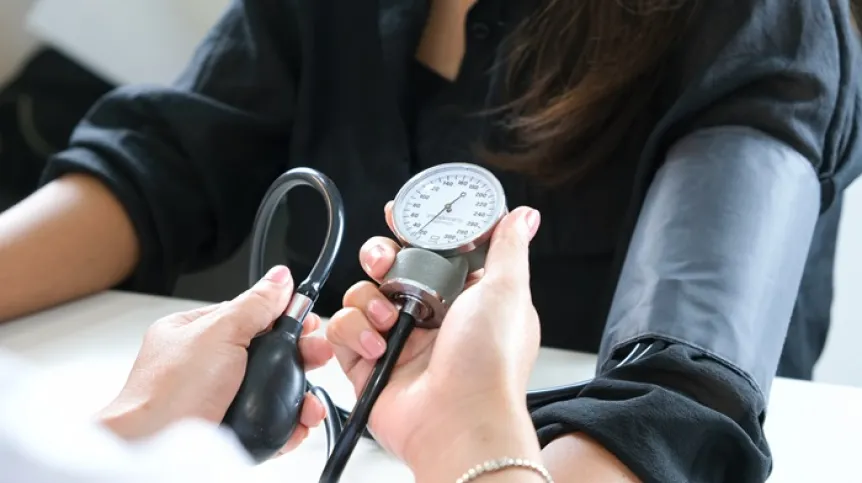
Patients with hypertension have poorer sleep quality than those with normal blood pressure, according to a study by researchers from Wrocław Medical University and the Wrocław University of Environmental and Life Sciences.
The study, published in Dental and Medical Problems, found that people with high blood pressure experience obstructive sleep apnoea more often, wake up more frequently during the night, and have significantly shorter REM sleep.
“People with hypertension have significantly lower sleep quality. They have significantly less REM sleep, which is crucial for emotional processing and memory consolidation. They may also experience more intense pain, including headaches. And they are much more likely to be diagnosed with obstructive sleep apnoea, which translates into increased cardiovascular risk,” said Helena Martynowicz, PhD, professor at Wrocław Medical University and the study’s first author.
The researchers analysed data from 133 people with suspected obstructive sleep apnoea. Of those, 52 had hypertension and 81 had normal blood pressure. Each participant underwent overnight polysomnography, a test that records brain waves, eye movements, breathing, heart rate, muscle activity and limb movements.
“This is the most reliable sleep quality test in the world. It allows us to determine the patient’s sleep phase, when they fall asleep, when they wake up, how they breathe, and how their heart and muscles are working. We can observe whether they have abnormal movement disorders, such as restless legs syndrome or bruxism (teeth grinding),” Martynowicz said.
The study found that patients with hypertension had higher rates of apnoea, more frequent awakenings due to breathing disorders, and lower blood oxygen levels than patients with normal blood pressure.
“We noticed that patients with hypertension not only suffered from obstructive sleep apnoea more often, but also experienced more severe symptoms,” Martynowicz said.
The causes of awakenings also differed. “Sleep fragmentation in patients with hypertension was primarily due to sleep apnoea, while in normotensive individuals, the most common cause of awakenings was bruxism,” she said. “Although people with hypertension also experience bruxism, it does not disrupt their sleep continuity.”
Blood tests revealed further differences. Patients with hypertension had lower magnesium levels and higher levels of C-reactive protein, glucose and uric acid. Vitamin D levels did not differ significantly between hypertensive and normotensive patients with sleep disorders. However, when compared to healthy individuals without sleep disorders, patients with hypertension and apnoea showed significantly lower vitamin D levels.
Martynowicz noted her team was the first to prove a link between sleep fragmentation and low blood calcium levels, which are tied to vitamin D deficiency. “Previous reports on this topic were based solely on animal studies. We were the first to demonstrate this correlation in humans,” she said.
She added: “Vitamin D is involved in calcium metabolism, so if there is too little of it, the body cannot effectively absorb calcium or maintain its proper concentration in the blood. As a result, deficiencies of this mineral develop, which can impair the functioning of nerves and muscles, including those controlling reactions during sleep, leading to more frequent awakenings.”
Martynowicz concluded: “Our discovery fits into the broader picture of cardiovascular risk mechanisms, which has been much discussed recently. Frequent awakenings and interrupted sleep put more strain on the heart and blood vessels, which indirectly increases the risk of cardiovascular problems.”
According to the authors (https://doi.org/10.17219/dmp/172243), polysomnography may be a valuable tool for assessing cardiovascular and metabolic risk. Reduced sleep efficiency, frequent awakenings, shorter REM sleep and greater sleep fragmentation could serve as early warning signs of underlying health problems, particularly in patients with hypertension.
Katarzyna Czechowicz (PAP)
PAP - Science in Poland
kap/ zan/ mhr/
tr. RL













